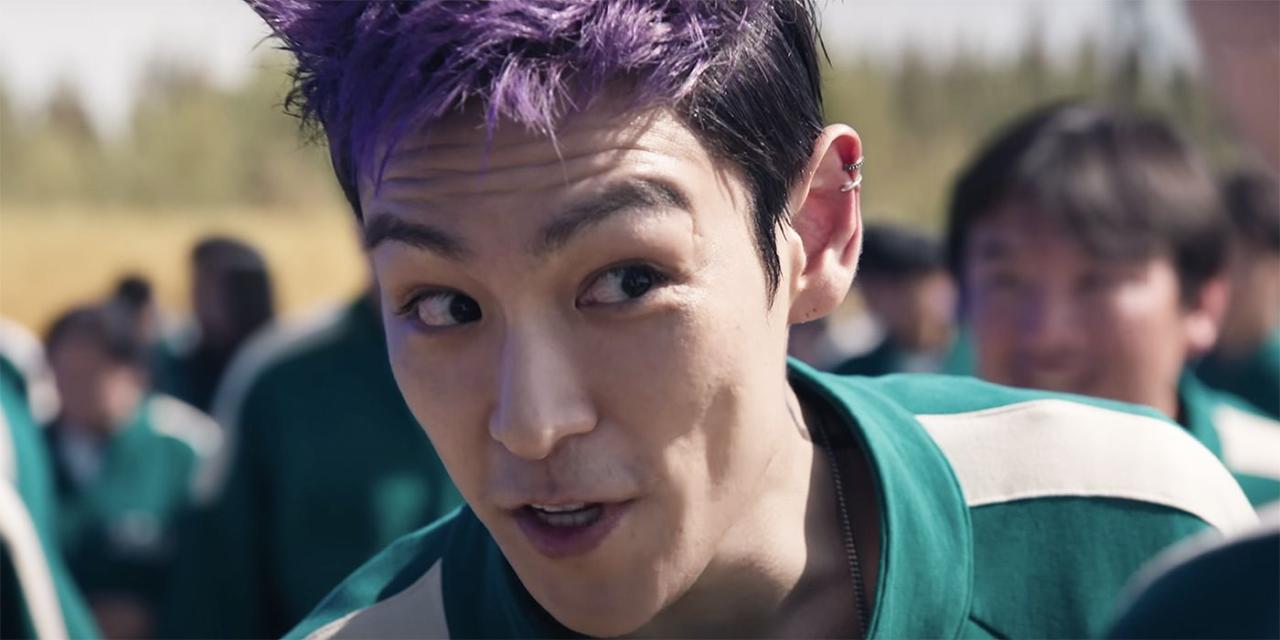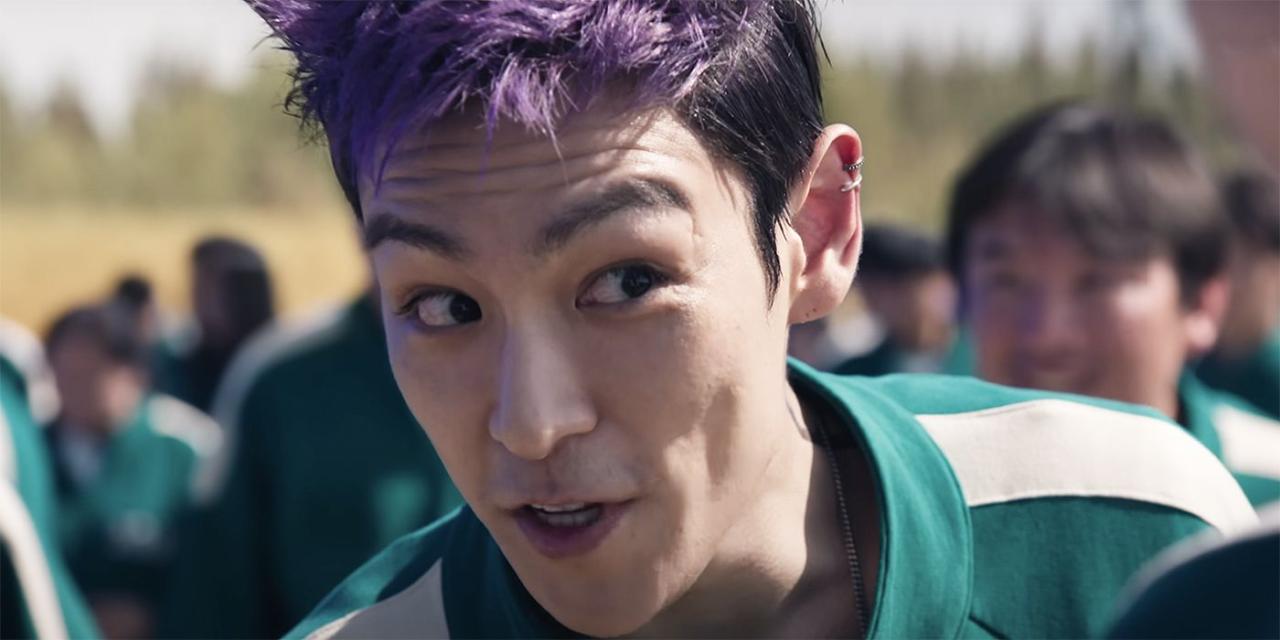Squid Game Histoire Vraie? The wildly popular Netflix series sparked intense debate: is it pure fiction, or a chilling reflection of real-world struggles? This exploration delves into the socio-economic realities of South Korea, examining the debt crisis, gambling addiction, and stark inequalities that resonate with the show’s brutal premise. We’ll compare the game’s high-stakes challenges to real-life survival scenarios in reality TV and explore the psychological toll of extreme competition and pressure.
Ultimately, we’ll uncover how Squid Game serves as a powerful, albeit fictionalized, commentary on modern capitalism and its devastating consequences.
So, you’re wondering about “Squid Game histoire vraie”? While the show’s fictional, its themes of desperation and inequality resonate with real-world struggles. Think about the pressures that lead to such extreme situations; it’s a stark reminder of how easily things can go wrong, similar to the devastating impact of events like the fullerton plane crash , which highlighted the fragility of life and the unforeseen consequences of human error.
Ultimately, “Squid Game histoire vraie” isn’t about a specific event, but rather the universal human experience of facing impossible choices.
We’ll analyze the show’s visual storytelling, dissecting its use of color, set design, and character costumes to amplify themes of desperation and inequality. By comparing fictional game scenarios to real-life economic hardships, we aim to understand the show’s impact and its enduring relevance in a world grappling with similar issues. The analysis will also include a look at the ethical considerations of reality TV shows that push participants to their limits, drawing parallels to the Squid Game’s morally ambiguous narrative.
The Socioeconomic Realities Mirrored in Squid Game

The wildly popular South Korean series, Squid Game, captivated audiences worldwide with its brutal depiction of survival games. While fictional, the show starkly reflects the harsh realities of South Korean society, particularly concerning debt, economic inequality, and the desperation faced by many citizens.
South Korean Debt and Economic Inequality, Squid game histoire vraie

South Korea’s economic landscape is characterized by a significant gap between the wealthy elite and a large segment of the population struggling with debt and economic insecurity. High levels of household debt, often stemming from the pressure to maintain a certain lifestyle and access to education and housing, contribute to a climate of financial precarity. Gambling, while officially regulated, remains a prevalent issue, exacerbating financial woes for many individuals and families.
Lower-income families frequently face challenges in affording basic necessities, including housing, healthcare, and education, creating a cycle of poverty that is difficult to escape.
The desperation portrayed in Squid Game, where individuals risk their lives for a chance at financial freedom, mirrors the real-life struggles of those burdened by insurmountable debt and limited opportunities. The show’s depiction of poverty and desperation, while heightened for dramatic effect, resonates with the experiences of many South Koreans facing economic hardship. The intense pressure to succeed financially, often at the expense of mental and physical well-being, is a common thread in both the fictional world of the game and the realities of South Korean society.
| Game Scenario | Real-Life Equivalent | Impact on Participants (Fictional and Real) | Social Commentary |
|---|---|---|---|
| Playing deadly games for a large sum of money | Taking on high-interest loans with crippling consequences, engaging in risky financial ventures out of desperation | Death (fictional); bankruptcy, homelessness, severe mental health issues (real) | Highlights the desperation driven by extreme economic disparity |
| Facing life-or-death choices due to debt | Facing eviction, inability to afford medical care, or sacrificing education for financial survival | Physical and psychological trauma, loss of dignity (both fictional and real) | Critiques the systemic issues leading to such extreme choices |
| Competition for limited resources | Competition for jobs, housing, and other essential resources in a highly competitive market | Stress, anxiety, and feelings of inadequacy (both fictional and real) | Illustrates the harsh realities of a meritocratic system with limited social safety nets |
| Exploitation of vulnerable individuals | Predatory lending practices, exploitation of low-wage workers | Financial ruin, loss of hope (real); death (fictional) | Exposes the darker side of capitalism and the vulnerability of those at the bottom |
Survival Games and Reality TV: Parallels and Ethical Concerns
The popularity of Squid Game isn’t isolated. Numerous reality TV shows and survival games incorporate elements of extreme competition and high stakes, often pushing participants to their physical and psychological limits. Shows like Survivor and Fear Factor, while not involving life-threatening consequences, still explore themes of competition, resource scarcity, and the lengths people will go to for survival or victory.
These shows, however, raise significant ethical questions regarding the well-being of participants and the potential for exploitation.
The ethical considerations surrounding these programs are complex. While entertainment value is undeniable, the potential for psychological harm, manipulation, and the exploitation of vulnerable individuals must be carefully examined. The line between entertainment and exploitation becomes increasingly blurred when the stakes are high, and the potential for lasting damage is significant.
| Show | Similarities to Squid Game | Differences from Squid Game |
|---|---|---|
| Survivor |
|
|
| Fear Factor |
|
|
| The Circle (Netflix) |
|
|
Psychological Impact of Extreme Competition
High-stakes competition and intense pressure can have profound psychological effects. The stress of potentially life-altering consequences, coupled with the intense pressure to perform, can lead to unethical behavior, impulsive decision-making, and severe mental health challenges. In Squid Game, we witness the devastating effects of extreme stress and trauma on the contestants’ behavior, showcasing the fragility of the human psyche under immense pressure.
Individuals facing life-threatening situations for financial gain are particularly vulnerable. The desperation to escape poverty and provide for their families can override moral considerations, leading to actions they might otherwise avoid. This psychological impact is not limited to the fictional world; real-life examples of individuals engaging in risky behavior due to economic hardship are abundant.
- Increased stress and anxiety
- Depression and feelings of hopelessness
- Impaired judgment and decision-making
- Ethical compromises and unethical behavior
- Post-traumatic stress disorder (PTSD)
- Substance abuse
Social Commentary and Criticisms of Capitalism
Squid Game is more than just a thrilling survival drama; it serves as a potent social commentary on wealth inequality and the flaws of capitalist systems. The stark contrast between the opulent lifestyles of the VIPs and the desperate struggles of the players highlights the systemic issues that perpetuate economic disparity. The games themselves can be interpreted as metaphors for the cutthroat nature of competition in a capitalist society, where individuals are pitted against each other in a relentless pursuit of success.
A hypothetical scene could depict a VIP casually dismissing the deaths of the players as collateral damage in their pursuit of entertainment, while simultaneously celebrating their own immense wealth accumulated through exploitative practices. This juxtaposition vividly illustrates the show’s critique of the indifference and moral bankruptcy often associated with unchecked capitalism.
- Wealth inequality
- Exploitation of the working class
- The dehumanizing effects of capitalism
- The systemic nature of poverty
- The moral bankruptcy of unchecked greed
Visual Representation of Desperation and Inequality

The visual elements of Squid Game are meticulously crafted to amplify the themes of desperation and inequality. The stark contrast between the vibrant, almost cartoonish colors of the game sets and the drab, muted tones of the players’ everyday lives underscores the disparity between their worlds. The players’ uniforms, simple and utilitarian, stand in stark contrast to the extravagant attire of the VIPs, further emphasizing the chasm between the two groups.
The VIPs’ viewing area, opulent and luxurious, is a stark contrast to the bleak and brutal environments where the games are played. This visual dichotomy serves to highlight the callous indifference of the wealthy towards the suffering of the players. The color palette is strategically used to evoke specific emotions, with bright, almost artificial colors employed in the game settings to create a sense of unease and artificiality, while the muted tones of the players’ surroundings highlight their bleak reality.
Conclusive Thoughts: Squid Game Histoire Vraie
Squid Game, while fictional, acts as a stark warning. It’s a powerful reflection of the very real struggles faced by many globally, highlighting the devastating consequences of extreme economic inequality and the pressures of a hyper-competitive society. The show’s brutal games are a metaphor for the often-unseen battles individuals wage daily to survive. By examining the parallels between the show and real-world scenarios, we gain a deeper understanding of the systemic issues fueling desperation and the urgent need for social change.
So, you’re wondering about “Squid Game histoire vraie”? While the show’s fictional, its themes of desperation resonate. Think about the scale of spectacle – it’s a far cry from the breathtaking visuals of a completely different kind of spectacle, like the amazing china new year’s drone show , which also uses technology to create stunning displays. Both, in their own way, highlight the power of visuals and technology to captivate audiences, though the underlying messages differ wildly.
Returning to “Squid Game histoire vraie,” the show’s success speaks to the enduring appeal of high-stakes drama.
The show’s lasting impact lies not just in its entertainment value but in its ability to spark critical conversations about societal flaws and the human cost of unchecked capitalism.
Commonly Asked Questions
What inspired the creation of Squid Game?
The creator drew inspiration from various sources, including his own childhood experiences and observations of South Korean society’s economic struggles and the popularity of survival games and reality TV.
Is there a real-life equivalent of the Squid Game?
While no exact replica exists, the show reflects real-world issues like extreme debt, societal pressure, and the exploitation of vulnerable populations for entertainment.
What are the ethical implications of reality shows similar to Squid Game?
Ethical concerns revolve around the potential for exploitation, psychological harm to participants, and the blurring lines between entertainment and real-life consequences.
So, you’re wondering about the “Squid Game histoire vraie”? While the show’s fictional, the desperation it depicts is sadly real in many parts of the world. Think about the sheer scale of coordinated spectacle needed for something like the games – it makes you consider the technological advancements shown in a completely different context, like the incredible displays at the china drone show 2055.
The precision and coordination involved there highlight how easily technology can be used for either awe-inspiring displays or something far more sinister, echoing the themes in “Squid Game histoire vraie”.
How accurate is Squid Game’s portrayal of South Korean society?
While exaggerated for dramatic effect, the show reflects real socio-economic issues in South Korea, such as high levels of debt and income inequality.
